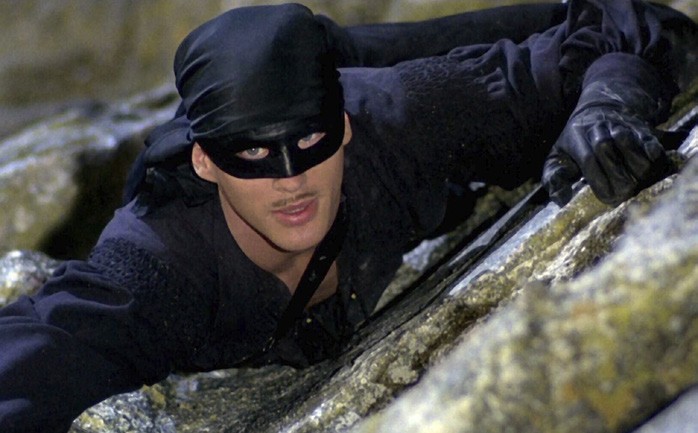THE ’80s FANTASY boom turned out to be more of a bust. But between the twee likes of Legend and the overblown prog-rock knock-offs like Krull, there is at least one genuine treasure. Rob Reiner’s The Princess Bride is a comic delight and a subversive fairy tale that’s been much imitated (Shrek, Ella Enchanted) but never bettered. Sometimes the stars just align —or perhaps it’s testament to the unstoppable power of true love.
The story is admittedly hokey. A farm girl called Buttercup (Robin Wright) agrees to marry a prince after her boyfriend, Westley (Cary Elwes), goes off to seek his fortune and is lost to pirates. Then she’s kidnapped by three ne’er-dowells at the prince’s command, and rescued by a mysterious man in black —who turns out to be her long-lost fella, something he reveals by saying, “As you wish,” his own personal code for “I love you.” The lovers and kidnappers team up to take down the prince and save the day, before riding off into the sunset. Throw in some duels, some monsters, a giant, a little light torture and the greatest revenge mission since Captain Ahab and you’re onto something; add in some selfaware sass and you have a unique sort of magic.
William Goldman’s book, and the idea of adapting it, had been around for years; Richard Lester, Robert Redford, Norman Jewison and François Truffaut are all said to have had a crack, but studios were less keen. Reiner had been given the book by his father, Carl, and loved it dearly. He pitched it numerous times, but even after This Is Spinal Tap and The Sure Thing he needed funding from Norman Lear, his former producer on sitcom All In The Family, to get it off the ground. Still, budget limitations ruled out much in the way of fantastical beasts or spectacular magic; they could just about cover some fight training, one or two rat costumes and a few windswept weeks in the north of England. But Reiner knew what he was doing. What his film lacked in money, it made up for in wit, and the dialogue sparkled even when the weather merely sprinkled.
What’s clever about Reiner’s film, and Goldman’s book, is that they deconstruct their own story as it goes. Goldman claimed that his book was an adaptation —a bowdlerisation, really —of a classic of European literature, where he’d simply cut out all the boring bits: the same way that the musical of Les Misérables became a huge sensation by leaving out Victor Hugo’s long disquisitions about monastic life and the importance of sewers. Reiner’s film achieves the same effect by having a grandfather (the great Peter Falk) turn up to read a story to his deeply sceptical grandson (Fred Savage), who jumps in to object every time that the story gets too soppy (“Is this a kissing book?”), or too slow (“Murdered by pirates is good,” he concedes).

A mysterious hero —who could it be?